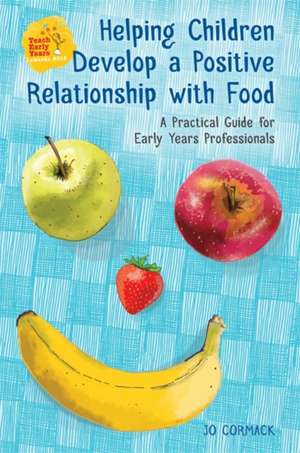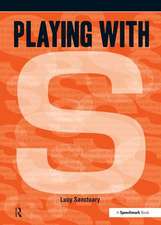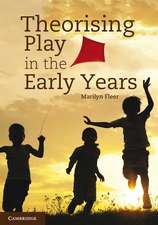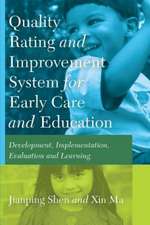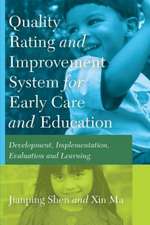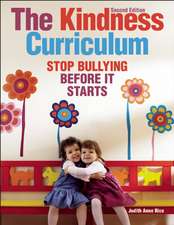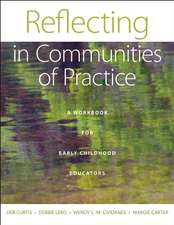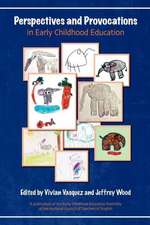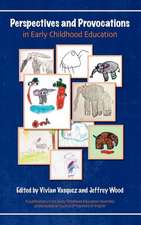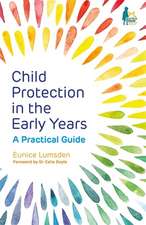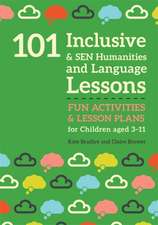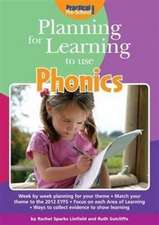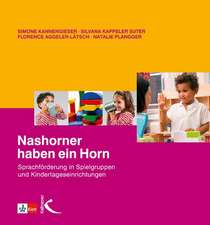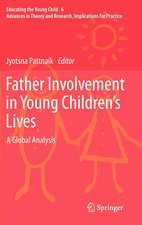Helping Children Develop a Positive Relationship with Food
Autor Jo Cormacken Limba Engleză Paperback – 14 dec 2017
Preț: 127.02 lei
Preț vechi: 153.94 lei
-17% Nou
Puncte Express: 191
Preț estimativ în valută:
24.31€ • 26.40$ • 20.42£
24.31€ • 26.40$ • 20.42£
Carte disponibilă
Livrare economică 02-16 aprilie
Livrare express 18-22 martie pentru 49.56 lei
Preluare comenzi: 021 569.72.76
Specificații
ISBN-13: 9781785922084
ISBN-10: 1785922084
Pagini: 208
Ilustrații: n/a
Dimensiuni: 152 x 228 x 22 mm
Greutate: 0.31 kg
Editura: JESSICA KINGSLEY PUBLISHERS
ISBN-10: 1785922084
Pagini: 208
Ilustrații: n/a
Dimensiuni: 152 x 228 x 22 mm
Greutate: 0.31 kg
Editura: JESSICA KINGSLEY PUBLISHERS
Notă biografică
Jo Cormack is a paediatric feeding consultant, registered counsellor, and doctoral student in feeding children at Bishop Grosseteste University. She runs the online blog Emotionally Aware Feeding, and is a mum of three.
Cuprins
Acknowledgements. Introduction. Section One: All about a good relationship with food. 1. What is a positive relationship with food and why does it matter? 2. Self-regulation. 3. The division of responsibility model. 4. Exposure and variety. Section Two: Under pressure. 5. What is a controlling feeding style? 6. Why is being controlling unhelpful? 7. Attention and praise. 8. Who knows best? Learning to trust children. Section Three: Food and feelings. 9. Understanding emotional eating. 10. Rewarding and punishing with food. 11. How we talk about food. 12. Reflecting on your own relationship with food. Section Four: Implications for practice - fostering a positive relationship with food. 13. Structure. 14. Content. 15. Serving family style. 16. Staff training. Section Five: Your food ethos. 17. The eating environment. 18. The social side of eating. 19. Modelling. Section Six: Nutrition and healthy eating. 20. Healthy eating and the EYFS framework. 21. Fun not fear - how to teach about nutrition. 22. Your food policy. Section Seven: Working with parents. 23. Being a team. 24. Empowering without blaming. 25. Understanding eating skills. 26. All about drinking. Section Eight: What we can do away from the table. 27. The power of play. 28. Helping children engage with their food. Section Nine: A closer look at picky eating. 29. Picky eating - is there really a problem? 30. What is behind picky eating? 31. Core principles when working with picky eaters. 32. Strategies to help picky eaters. Section Ten: Special cases. 33. ARFID. 34. Allergies and intolerances. 35. ASD. 36. Sensory processing. 37. Oral motor skills. 38. Obesity. Section Eleven: A case study. Nurture Early Learning, New Zealand. Final thoughts. Resource guide. References.
